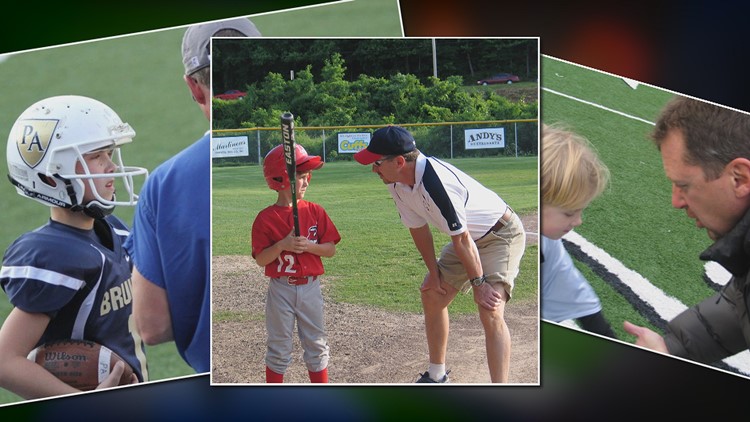LITTLE ROCK, Ark. (KTHV) - Millions of American children play organized sports every year. That's a lot of kids. And a lot of pressure on them to perform.
You’ve all seen or been 'that' parent, the one yelling at games, pushing and pushing their child to do better, work harder. But does it really work?
And further, does specializing in one sport early-on give a child an edge or advantage over others? It’s a simple answer, verified by several medical studies, a local sports medicine doctor, and a basketball coach, both of them with kids who are in the thick of it.
Josh Hayes is a dad to two boys, 11-year-old Jai and 7-year-old Vann. He's also coached basketball for 11 years, after himself playing at both Ole Miss and the University of Central Arkansas. "It's a true passion, a true love of mine," he said. Hayes has coached multiple teams, one at Glenview Community Center which is the same gym where former Razorbacks Anton Beard and Daryl Macon started out. It’s the same gym where NBA star Bobby Portis and Archie Goodwin hooped when they were young. It’s that dream of so many young players.
"Man, I love the game, there's nothing more that I enjoy is watching my sons play and watching their growth and progression," said Hayes. But watching that growth and progression has not always been a slam dunk, Hayes admitted. "I'm guilty, I'm one of em!" said Hayes.
He's guilty of pushing too hard, too young. "In fact, I pushed him to the point where he quit, he wasn't having any fun anymore. It was a daily grind. I was always on him. I was always trying to push him. He just wanted to have fun and play basketball," said Hayes. But Hayes is not alone.
Millions of parents, according to a study in the American Journal of Sports Medicine, want to give their, "Young athlete an edge in competition, the pursuit of scholarships, and potential professional status." In Hayes' case, he learned his lesson the hard way. He let his son quit and stopped putting pressure on him to perform. And slowly, Jai found his way back to the hardwood.
"I realized I was forcing him to do it, I was living through him and you can't do that. The kid has to want it, you gotta put him in the position to expose him to it and to begin to like the sport, but they have to have a true love for the sport," Hayes added. "When I stepped back and saw him blossom and play better when I just cheered him on and stopped fussing, I knew I was doing the right thing."
“If a kid really loves something you can't get him to stop and if he hates it you can't get him to do it,” said sports medicine physician and surgeon Doctor William Hefley. He also coached his sons growing up. He verified kids are specializing in one sport too soon. "I think the answer is yes. I think it's better to play multiple sports," said Dr. Hefley. He told us to start young but leave the pressure off the field. Simply instill a love of sports in your child early. Dr. Hefley started his boys playing baseball, basketball and football. It wasn’t until high school that they drop everything but the gridiron. His son, Ren, is the star quarterback right now for Bryant High School.
A few years back his son, Will, signed to play football for Tulsa. "A better word than push your kid is, facilitate what they love," said Dr. Hefley. "When they're 9, 10, 12 years old, you're not really pushing them, so few kids are ever gonna play professional sports. So, you're not pushing that they'll get college paid for, playing professionally, you're spending time together, coaching them, facilitating them, letting them do what they love."
And that same study in the American Journal of Sports Medicine verified early sports specialization does not lead to a competitive advantage over athletes who participate in multiple sports. Hayes now has others coach his son. But in his years of coaching, he's guided more than 400 young players and parents.
"I see it all the time, and I try to talk to have those conversations with parents because if you push kids at too early of an age if you burn them out, have them playing too much. When they get older they don't want to do it anymore, they just want to have fun and be a normal child," said Hayes.
Both Hayes and Dr. Hefley agreed parents should listen to their child, but most importantly, be supportive and be realistic. "If a kid really loves something you can't get him to stop and if he hates it you can't get him to do it," added Dr. Hefley.
"Whatever you do support your child, they're gonna have their coach fussing, teammates fussing, sometimes they need you for moral support to clap them up and tell them good job," said Hayes. Studies and experts stop short of saying an exact age at which kids should really step-up their game, but they generally agree late in middle school or the start of high school is when you will begin to see your child's passion and then advise. Let that drive your decision making.
If you'd like to know more, there are helpful links.



